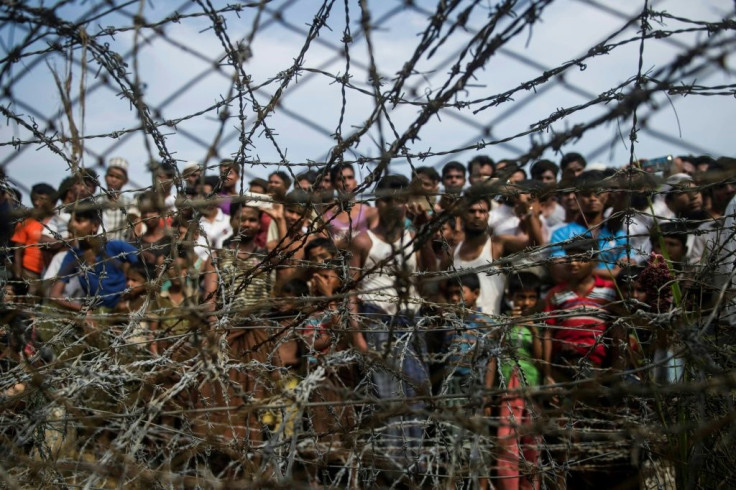A COVID ‘Vaccine Passport’ May Further Disadvantage Refugees And Asylum Seekers
With great fanfare, the COVID-19 vaccine rollout began in Australia this week. Prime Minister Scott Morrison has said the government will give “all Australians the opportunity to be vaccinated by October 2021”. The government’s strategy states the vaccine will be available free of charge to “all Australian citizens, permanent residents, and most visa-holders”.
While the government has since clarified that refugees and other people in immigration detention will be eligible for the vaccine, serious concerns remain about how the rollout will affect refugees within and outside of Australia, as well as the sizeable portion of people living “undocumented” (that is, without a valid visa) in Australia. Especially contentious is the use of so-called COVID passports.
What is a ‘COVID passport’?
This is a catch-all term for (most likely digital) proof that a person has been vaccinated, also sometimes referred to as an “immunity passport”. COVID passports promise to make it easier to access venues domestically and travel internationally. In Australia, the idea of COVID passports is seen as an alternative to the mandated system of 14-day quarantine, or at least as a way of freeing up international travel to and from Australia.
Indeed, the International Air Transport Association (IATA), an industry body representing 290 airlines worldwide, has begun developing a universal IATA Travel Pass. This would function as a digital vaccine certificate to enable passengers to verify their vaccination status.
Australian states and territories have indicated support for introducing a COVID passport. Airlines have indicated they will follow suit. For example, Qantas has proposed a “no jab, no-fly” policy, which would require all passengers to and from Australia to show proof of vaccination.
Yet, official documentation (as a COVID passport would be) can be fraught and difficult to access for refugees and asylum-seekers, who often must destroy identifying documents when fleeing their homeland, or who come from regions where there can be inadequate documentation of their identity, including lack of precise details of birth.
Countries have long used official passports as a means of enabling and tracking movement within and across borders. State-issued passports now function to limit global mobility for some, while fostering it for others. Documentation of a person’s vaccine status could potentially have the same effect.
Refugees and COVID vaccine rollouts
Just last month, the United Nations High Commissioner for Refugees stressed that including refugees in vaccination programs was “key to ending the pandemic”. Thankfully, certain key refugee host states such as Jordan and Lebanon are including refugees in their national COVID vaccine rollouts.
Yet, an estimated 9 out of 10 people living in the poorest states in the world may not receive the vaccine this year. Refugees and asylum-seekers worldwide are likely to be significantly affected by such vaccine inequalities.
Requiring “COVID passports” for refugees outside Australia awaiting family reunification, sponsorship, or resettlement to Australia would then be an added hurdle to their access to asylum and safety. It will also add further delays to an already prolonged process, exacerbated by the Australian government’s decision to informally pause the resettlement program in 2020 in response to COVID.
For refugees and asylum-seekers already in Australia, there are serious concerns about their ability to access the vaccine. This because they have been neglected in the Australian government’s approach to COVID so far. For example, the government long refused to release refugees and other people from immigration detention centers during COVID.
This was particularly fraught because detention centers, and so-called Alternative Places of Detention (APODs) such as hotels, place people at greater risk of infection, due to cramped conditions and the impossibility of social distancing. While some refugees in APODs were recently released, they now have an appalling lack of government support for housing and medical care.
In addition, a sizeable group of asylum-seekers on bridging visas who are awaiting the outcome of their visa applications, or whose visa may have lapsed due to departmental processing delays, remain ineligible for Medicare. As a result, they have limited access to proper health care, let alone documentation of their vaccination status.
A new migrant amnesty is needed on COVID
Immigration reform is needed for COVID passports to be effective for all people in Australia. Providing permanent visas for refugees, asylum-seekers and other temporary migrants are vital to ensuring everyone can receive affordable and accessible medical care, including a subsidized COVID vaccine.
There are currently more than 2 million people on temporary visas and about 64,000 “undocumented people” in Australia. COVID has made clear the urgent need for Australia to adopt a wide-scale immigration amnesty program. This has been called for by labor law experts, a peak union, and groups such as Undocumented Migrant Solidarity. Such an amnesty would allow people who may have been living in Australia for years or even decades to be issued a permanent visa. This would then allow them to become Australian citizens in the future.
Such amnesties have previously been implemented in OECD states, including Australia, with successful uptakes in 1974, 1976, and 1980.
COVID passports and enduring inequalities
At this stage, the introduction of a system of “COVID passports” raises more questions than answers. This is not to say it should be rejected.
Rather, there is a need to take seriously the specific barriers such passports may create for refugees and asylum seekers, alongside general concerns about their effectiveness, legality, and morality. For now, state borders are likely to remain hard to cross for refugees and asylum seekers, despite the allure of greater mobility promised by COVID passports.

This article originally appeared in The Conversation.
Claire Loughnan is a Lecturer for the School of Social and Political Sciences at The University of Melbourne. Sara Dehm is a Lecturer at the University of Technology Sydney.





















